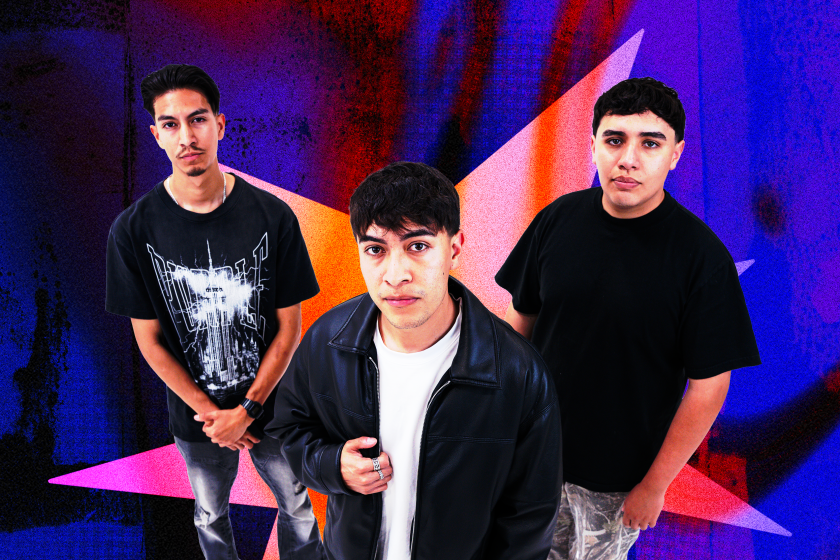Movie review: ‘Incendies’
- Share via
Writer-director Denis Villeneuve begins “Incendies,” his film adaptation of Wajdi Mouawad’s critically acclaimed play, with beauty and rage, motifs that will drive this modern tragedy of ancient conflicts from its roots in the Middle East to the seemingly safe haven of Canada.
The film opens with the first of many clues about the story to come: a desert landscape of a back country village somewhere in the Middle East so desolate that the trees struggle to survive fills the screen. The haunting ache of a song rises as director of photography Andre Turpin pulls us into a bare room filled with young boys, heads being shaved. New warriors for age-old battles. The camera lingers on one. He seethes in silence as the job is done, and whatever else is on screen, it is his fierce eyes that hold you.
With the tableau set, we are suddenly somewhere in French-speaking Canada hearing the will of Nawal Marwan (Lubna Azabal) read to her grown twins, Jeanne (Mélissa Désormeaux-Poulin) and Simon (Maxim Gaudette). She will leave them everything she has, including a mystery — a letter they are to deliver to the father they thought was long dead, another to a brother they did not know existed.
From the outset, Simon is the reluctant one, angry that even death hasn’t stopped his mother’s craziness. Jeanne, a mathematician, goes at the family history like a problem to be solved. The film is constantly shifting between Nawal’s past and the twins’ present, which is both a narrative device to piece the story together like a puzzle and a metaphor to remind us that the two are not so different.
To underscore exactly that, the filmmakers use mirror images throughout — a remote road seen through the mother’s eyes, then the daughter’s; a city street then and now — with the film moving nearly seamlessly between Nawal’s world and the twins’. But the past is where all the intrigue of the movie lies, and that is where the film is at its most compelling, with the present sometimes wilting in the desert heat.
Still, in opening up the story for the larger canvas of film, Villeneuve has done well to keep the ambiguity that made the play, which premiered in France in 2003, so challenging. That includes setting much of “Incendies” in a fictional city named Daresh to make stereotypes harder to come by. (The film was shot in Jordan and the filmmaker’s hometown of Quebec). More significantly, though key scenes turn on Christian versus Muslim tensions and their bloody result, the reason for the tension has been lost, no one is completely in the right, at times everyone is wrong, and it is the enemy within that is to be feared the most.
At the explosive center is Nawal’s story. The Belgium-born Azabal who portrays her is probably best known in the States for “Paradise Now,” in which she played a suicide bomber’s romantic interest, able to say volumes with a look. Those soulful eyes serve her well here. With a quiet restraint and an economy of movement in even the most brutal moments, Azabal makes the sometimes operatic extremes of Nawal’s tribulations come to chilling life.
Villeneuve has long been drawn to the way in which catastrophic experiences reshape lives. You can find it in the car crash driving the narrative in his 1998 feature film debut, “Un 32 août sur Terre” (“August 32nd on Earth”), through 2009’s “Polytechnique,” based on a misogynist’s killing spree in 1989 known as the Montreal Massacre. “Incendies” is his best-realized work yet and was nominated for an Oscar earlier this year in the foreign language category (won by another story of family conflict found in Susanne Bier’s “In a Better World”). That passion for tragedy courses through “Incendies,” helping to mitigate its weaker moments and leaving us to contemplate the true legacy of hatred — fresh scars on a new generation that will take a lifetime, if ever, to heal.
More to Read
The biggest entertainment stories
Get our big stories about Hollywood, film, television, music, arts, culture and more right in your inbox as soon as they publish.
You may occasionally receive promotional content from the Los Angeles Times.










